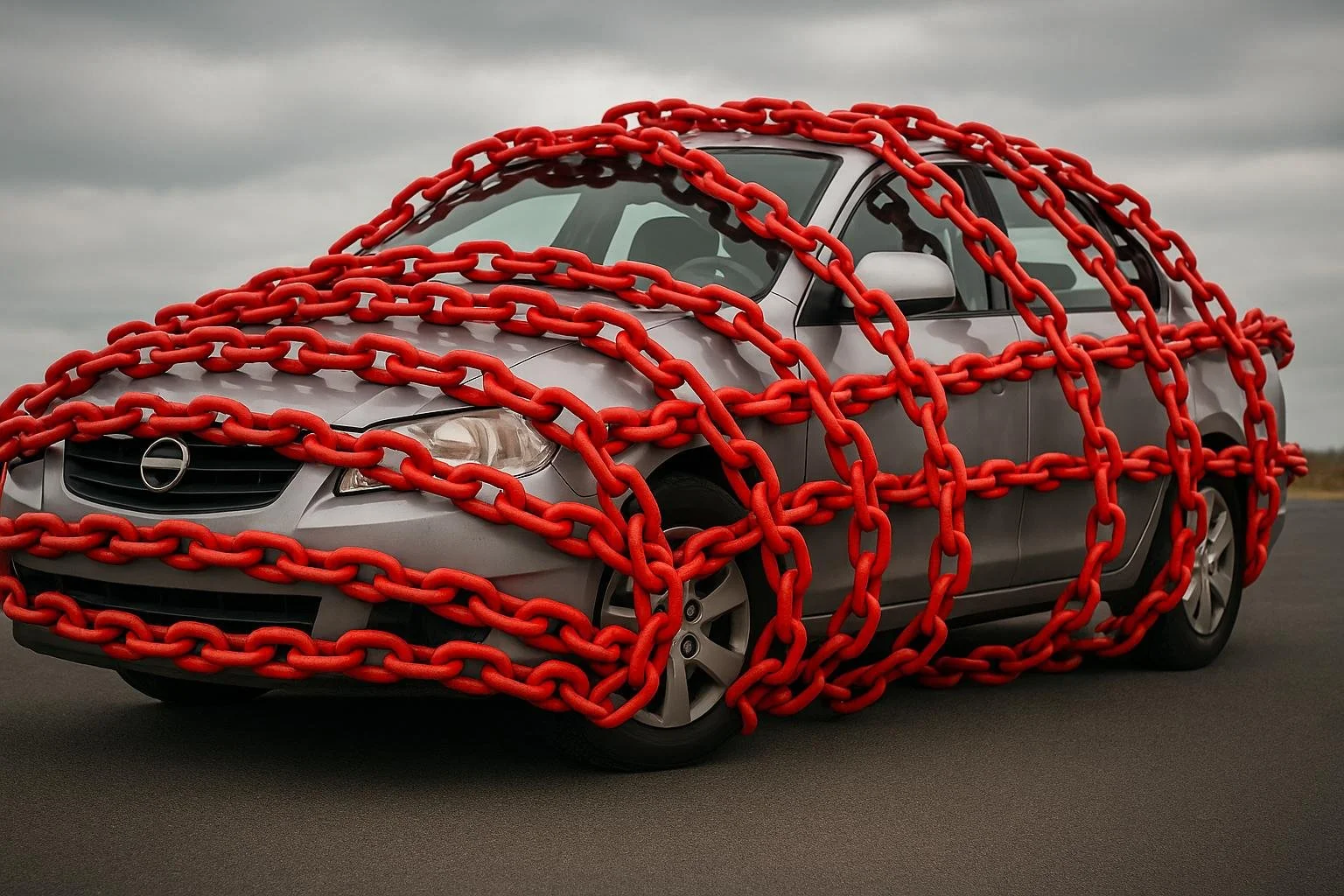Grand theft auto?
Why we are not solving climate change
No-one seriously doubts manmade climate change, and there is more of a scientific consensus on the range of likely effects than some of the more lurid headlines would suggest. The cost of the impacts is reasonably clear. To solve climate change, the technology options are also fairly clear and well costed. There is also consensus that we need to invest now in the solutions, even if there is some disagreement as to the total net cost over time.
Why, then, is it all proving so hard to see through?
We sit here around the societal dinner table shouting at each other, rather than genuinely discussing, listening and trying to understand each other. The carnivorous fossil fuel industry goads the vegan environmentalist, who moralises back, while trying to ignore the side-order of climate-denial fruit.
The simplistic answer to why this is proving a hard problem to solve is that there are powerful incumbent interests in fossil energy production and associated industries. That is not news, although it is an inescapable fact. We are stuck because we are trying to dislodge the vested interests in a way that is unlikely to work. We are attempting property appropriation, when we actually need to cut a deal. We are not on the brink of a political revolution because consumers remain quite happy with their cheap fossil fuels. Therefore, we need to address the preeminent position of the fossil fuel industry within our social contract, within agreed property rights and with the consent of all sides. After all, society needs industry for its security and quality of life, just as industry needs social acceptability.
If you think the accusation of property appropriation is far-fetched, consider this. Cars are a perfectly legal product for consumers to buy and use around the world, but in Europe, in particular, there have been progressively tightening constraints on when, where and how they can be used. Rules start sensibly, for example with speed limits and highway codes – the safety benefits outweighing the constraint on personal liberty. Access controls or pricing may deliver urban air quality benefits that society values. Then we get to blanket access prohibitions, technology bans, SUV-shaming and so on. For producers, who have equally been trading cars quite legally, they find technologies in which they have internationally competitive intellectual property (for example, internal combustion engines) banned, or assets they have developed (for example, oil fields) become stranded. It is reported that the European Union (EU) may even ban car rental firms and large companies from buying anything but electric vehicles from 2030.
To any pragmatic reader, the best answer is clearly to strike a midpoint that balances societal costs and benefits. All sides could probably agree on this, although sub-arguments would undoubtedly run as to where exactly that midpoint was. In practice what is happening is that each side is competing to extremes: net ZERO, vision ZERO, and so on. This is such a mistake as bads (such as pollution) tend to exist as by-products of goods (mobility). The only way to zero bads is zero goods. So, it is no wonder that the two sides cannot come together and just shout at each other, in a binary struggle for survival.
By virtue of their strong incumbent position, the fossil fuel industry can afford to take a cautious position on any significant changes. To try and dislodge these entrenched interests, the following playbook is often employed by opposing interest groups:
1. Highlight something undesirable (climate change, road safety), and make it an “emergency”
2. Set a target of zero for the undesirable thing
3. Make it a moral/existential crusade
4. Pick the winning solution
5. Pay “independent” organisations to lobby for your choice
6. Recruit followers and evangelists to pursue a grassroots campaign
7. Impugn the motives of anyone who disagrees with you.
Of the many questionable tactics, it is possibly stage two that is the most damaging. If you require zero bads then you ask for a de facto ban. You are appropriating physical and intellectual property. The constraint on free behaviour is not in proportion with the damage caused by the bad. Some car manufacturers promulgate the idea of zero fatalities from driving. As preventing those last few accidents will be so disproportionately expensive, it effectively makes cars infinitely expensive. A de facto ban. For society, undoubtedly an undesirable outcome.
The EU is undertaking a more direct form of property appropriation, but it also sits within the broader theme of net zero. It legislated recently to force car owners to scrap their vehicles when significant repairs are needed. Classic cars – typically valuable – are excluded but roadworthy older cars that deliver solid motoring but that are worth little in the market are highly vulnerable. We wrote about this “end-of-life” vehicle regulation when originally promulgated, in Kohlendämmerung.
Recent legislative discussions have made the proposal less troubling on the surface of it, but more troubling in the detail. Rather than being forced to scrap a vehicle at the point of repair, it only applies if selling the car, at which point proof of roadworthiness would be needed. In addition, sales between private individuals are excluded from the requirement. For vehicles being sold by or to a dealer, or via an online platform, a roadworthiness certificate would be required. Where a vehicle was in need of repair, showed excessive wear or had leaking fluids, an independent expert would need to be commissioned to opine on whether the vehicle was at the end of its life. At the end of life, the owner would need to deliver the vehicle to a special facility and obtain a certificate of destruction. As roughly half of vehicles in Europe are transacted commercially, rather than privately, this can be seen as a material transfer of value – in terms of expert fees – away from the vehicle owner, although you could always circumvent this by selling your car privately. Nevertheless, there would be inevitable diminution in vehicle value.
So, on the surface, the proposal has been made more acceptable and truer to the objective of avoiding exporting dud cars and aiding resource circularity. However, worrying terms hide in the details. It leaves it to Member States of the EU how strictly to implement the criteria listed in Part B of Annex I [of “Proposal for a Regulation of the European Parliament and of the Council on circularity requirements for vehicle design and on management of end-of-life vehicles, amending Regulations (EU) 2018/858 and 2019/1020 and repealing Directives 2000/53/EC and 2005/64/EC.”] A country could take a pure and extreme interpretation of the “criteria to be assessed.” Worse, the European Commission can rewrite the criteria whenever it likes, without democratic safeguard:
In order to take into account technical and scientific progress, the power to adopt acts in accordance with Article 290 of the Treaty on the Functioning of the European Union should be delegated to the Commission in respect of amending Annex I determining the criteria on when a vehicle is end-of-life vehicle.
If the sales of battery electric vehicles lag the key 2035 targets, what is there to stop the end-of-life rules being tightened both to put consumers off buying the last generation of internal combustion engine vehicles at the same time as pushing more existing vehicles off the road?
It is quite striking how far down the road of property appropriation we have already been led, but it has of course been done sliver after slice. Even so, it is not sufficient to criticise unless a viable alternative to solving climate change can be offered – but there is. As we have shown, aiming for zero bad entails banning the good. It’s going too far. Just to eke out that last benefit comes at a huge cost. The optimal point is, much more plausibly, the point at which the benefit increase equals the cost of achieving. This can only be practically achieved by putting a price, by some mechanism, on the pollution. In this vein, credit should be given to the EU for progress made so far on putting a price on carbon, although there is a long way to go to make the system broad enough in application to be effective.
For cars, there is fortunately a solution at hand, as detailed in a recent book by Professor Felix Leach and Nick Molden called Critical Mass – the one thing you need to know about green cars. As most unabated pollutants correlate well with car weight, if vehicle taxation were changed to be based exclusively on this factor, a price of pollution would effectively be established. No bans. No property appropriated. Just the driver paying the right price for the pollution created. The driver will adapt behaviour according to the price, and generate tax revenues to fund wider societal goods. As an aside, it is paradoxical that many who oppose such pricing approaches are strong advocates for dynamic pricing of electricity for electric cars.
To work out where you on the appropriation-pricing spectrum, ask yourself what the correct question is. Is it How do we limit driving? or is it How do we limit climate change?. The latter is the right question. If you plump for the former, you are using climate change to pursue a separate, car-restricting idea. And if you are plumping for the former, you will be much more disposed towards property appropriation. This polarity appears in another incarnation very often: How do we push electric cars? in contrast to How do we decarbonise transport?. They are not the same thing, and if you put the first question as the primary one, you are more interested in promoting electric cars than you are cleaning up transport.
Which brings us to the deal to be done to solve the problem of vested fossil fuel interests. Much as we might object to the pollution their products lead to, these companies have created legitimate, legal assets. Moving forward, their products should pay the true price of the pollution created, which is relatively uncontroversial, and is practical as described above. But this will still reduce the value of their assets, and, to get them to accept this, a level of compensation will be required. Not full compensation, though, as supporting decarbonisation will give them renewed societal legitimacy. Just as when the National Health Service was founded in the UK, the doctors were paid handsomely to forego their endowed interests to build a new public healthcare system. Just as when European slave owners were compensated for the loss of their labour to build a more equal society. This may be distasteful, but if an endowment is legally obtained, appropriating it will not work. This is also distinct from vexed discussion of compensation for past injustices, whether that is climate reparations, through first nation peoples, to the 245 cattle given to the Maasai for culturally sensitive artefacts in Oxford. Rather, we are talking about a conscious deal to allow progress.
In summary, then, we are not achieving our climate change goals because we have postulated zero as the desirable goal, have stirred up moral panic and are heading down the road of property appropriation. This will not work, not least because so many people have their pensions invested in industrial incumbents. There is a useful contrast with how so much progress has been made improving urban air pollution. Zero pollution has never been suggested, solutions have been carefully calibrated to balance societal benefit against cost, incumbent industry has been part of the solution, morals have largely been kept out of it, and air quality is much improved on just ten years ago. We need to apply this urgently to climate change. If it means net-minus-80% carbon dioxde and everyone plays their part in the solution, we will be a lot better off than now.
Yet it is so tempting for each of us to the decide the “right” solution and – due to the vital important of the topic – force this answer on others as a moral rather than objective imperative. Jean-Jacques Rousseau, the French philosopher writing in 1762, believed that people, when acting rationally and considering the common good, would naturally choose to obey laws that promote the overall well-being of society. Forcing someone to adhere to such laws is, therefore, simply helping them realise their true, rational will. In the famous phrase, they should be “forced to be free.” This is very much the theme and philosophy of European governments right now. It is not so different from how Stalin and Mao sought “moral improvement” of their people. This is a slope, and a dangerous one if you choose to go down it.
So, we have a choice between an unpalatable deal and a dangerous challenge to liberty. Put another way: the combustion car is under threat of being outlawed in order to dislodge fossil fuel interests. The economic, geopolitical and social damage from this may be much greater than a pragmatic deal, and may just hand the economic rent enjoyed by fossil industries straight to a different set of equally uncontrollable industrial and political interests.
Chose thoughfully, and be careful what you wish for.




